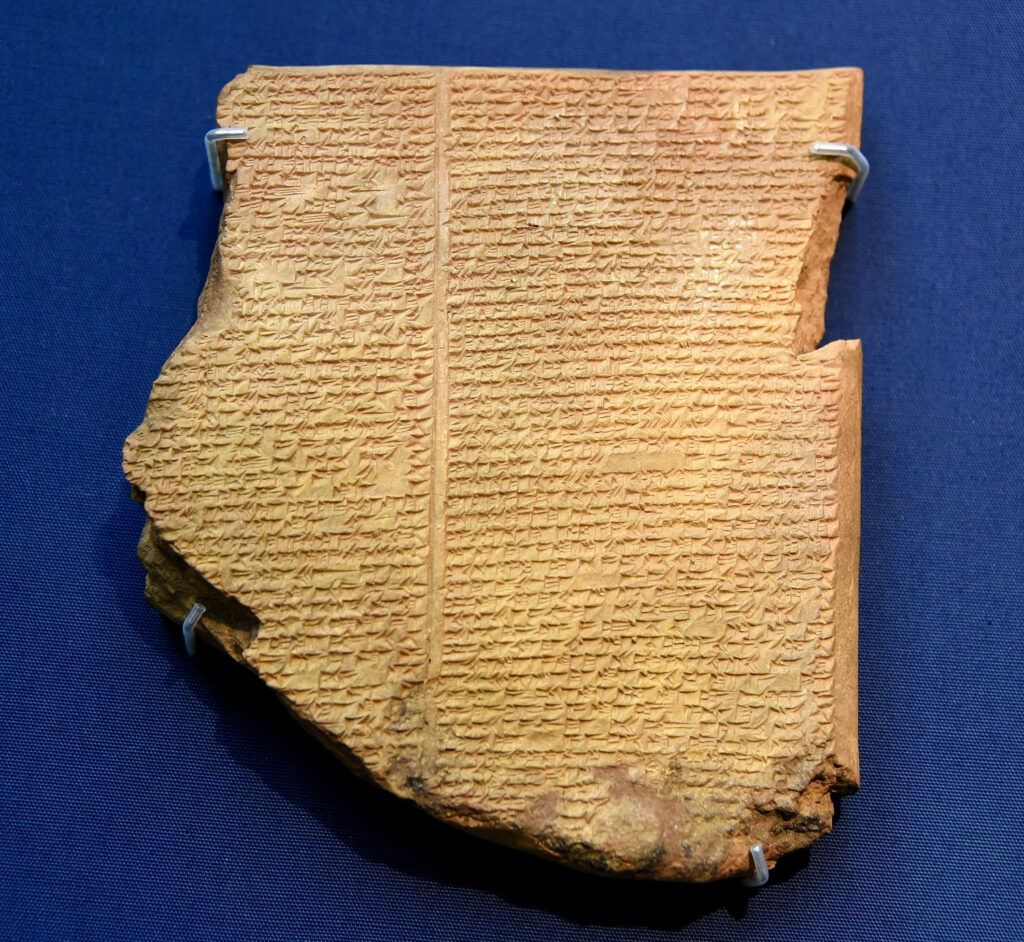Ancient Clay Tablet Reveals a Timeless Story

In the 19th century, a remarkable discovery shook the world of archaeology and biblical studies. The ‘Flood Tablet’, a 2,600-year-old clay artifact from the Library of Ashurbanipal, emerged from the sands of time. This ancient tablet, known as the 11th Tablet of the Epic of Gilgamesh, bore an uncanny resemblance to the well-known story of Noah’s Ark, igniting a sensation among scholars and the public alike.
The Divine Plan: A World-Cleansing Flood
Gods Conspire, Ea Rebels

The tablet unfolds a gripping narrative of divine intrigue. The gods, displeased with humanity’s sins, conspired to unleash a catastrophic flood to cleanse the earth. However, Ea, one of the deities, chose to rebel against this plan. In secret, he approached Utu-napishtim, revealing the impending disaster and instructing him to build a boat to save himself, his family, and a menagerie of animals.
Utu-napishtim’s Ordeal: Surviving the Great Deluge
Six Days and Nights of Torrential Rain
Heeding Ea’s warning, Utu-napishtim constructed his vessel and gathered the designated survivors. As the heavens opened, unleashing a torrent that would last six days and nights, the rest of mankind perished in the rising waters. Utu-napishtim’s boat, however, rode out the storm, carrying its precious cargo of life.
The Waters Recede
As the flood began to subside, Utu-napishtim’s boat came to rest. In a scene eerily similar to the biblical account, he released birds – a swallow and a raven – to determine if the waters had retreated enough for life to resume on land.
A New Beginning: Divine Honors for the Survivor
Utu-napishtim’s Tale Shared with Gilgamesh
The story, as recounted on the tablet, describes Utu-napishtim sharing his experience with Gilgamesh atop Mount Nimush. In gratitude for his survival, Utu-napishtim made sacrifices to the gods. Despite their initial anger at his survival, the deities granted him divine honors and a dwelling place near the mouth of the Euphrates River.
The Enduring Power of Ancient Narratives

The ‘Flood Tablet’ stands as a testament to the shared stories that bind humanity across cultures and millennia. Its striking parallels to the Noah’s Ark narrative highlight the universal themes of divine judgment, survival against overwhelming odds, and the resilience of life. As we continue to unearth and decipher such ancient artifacts, we gain invaluable insights into our shared human experience and the enduring power of myth and legend.
